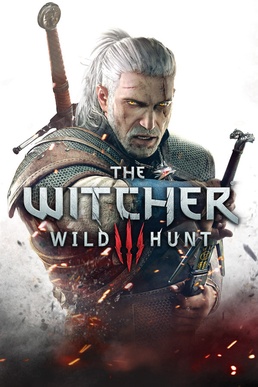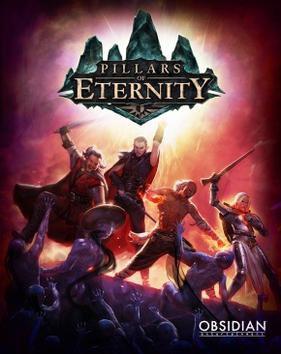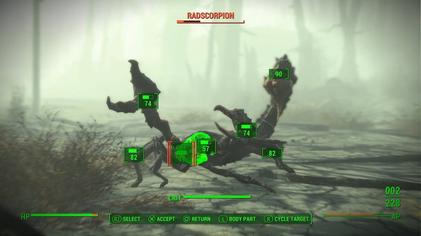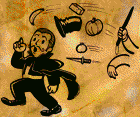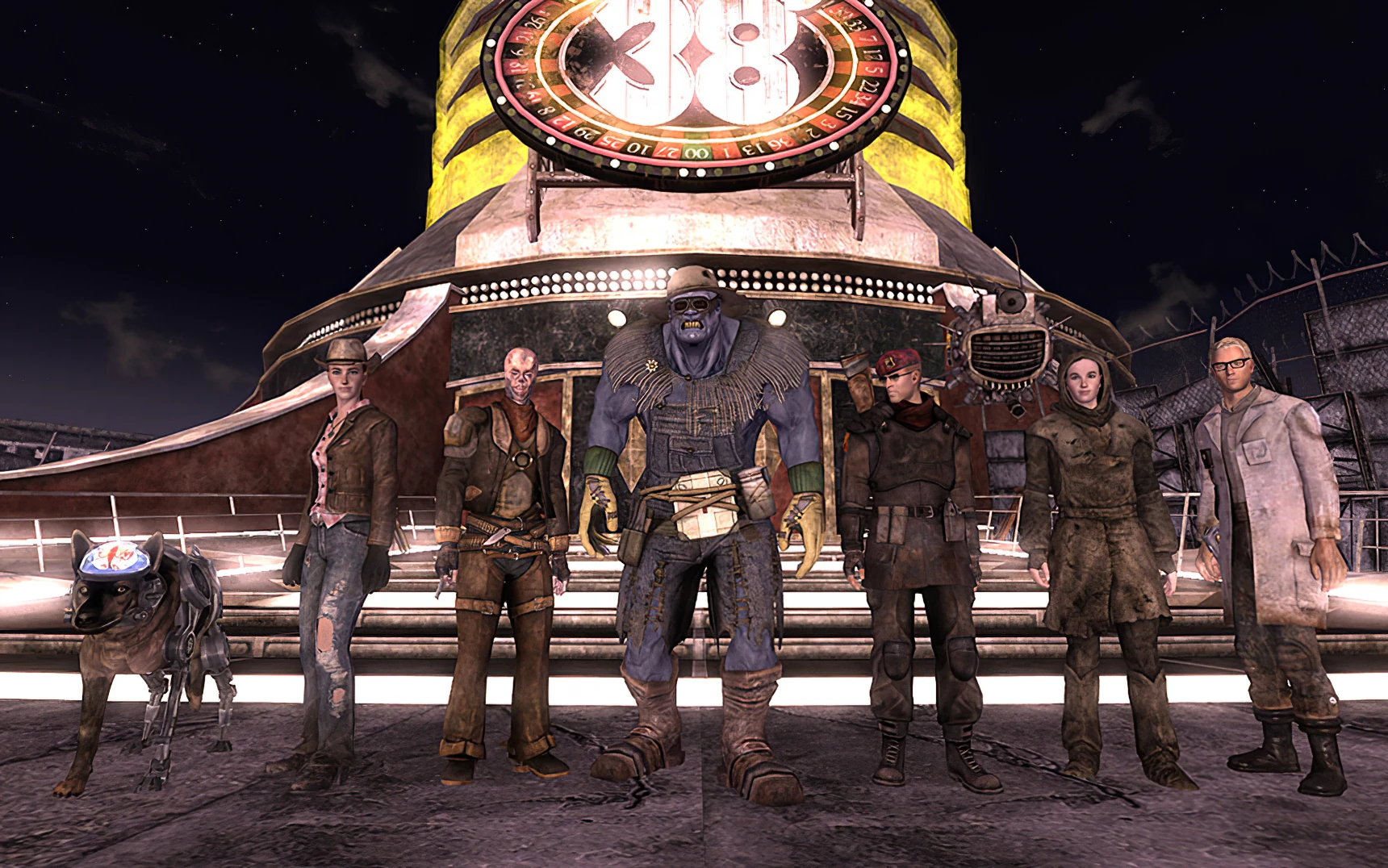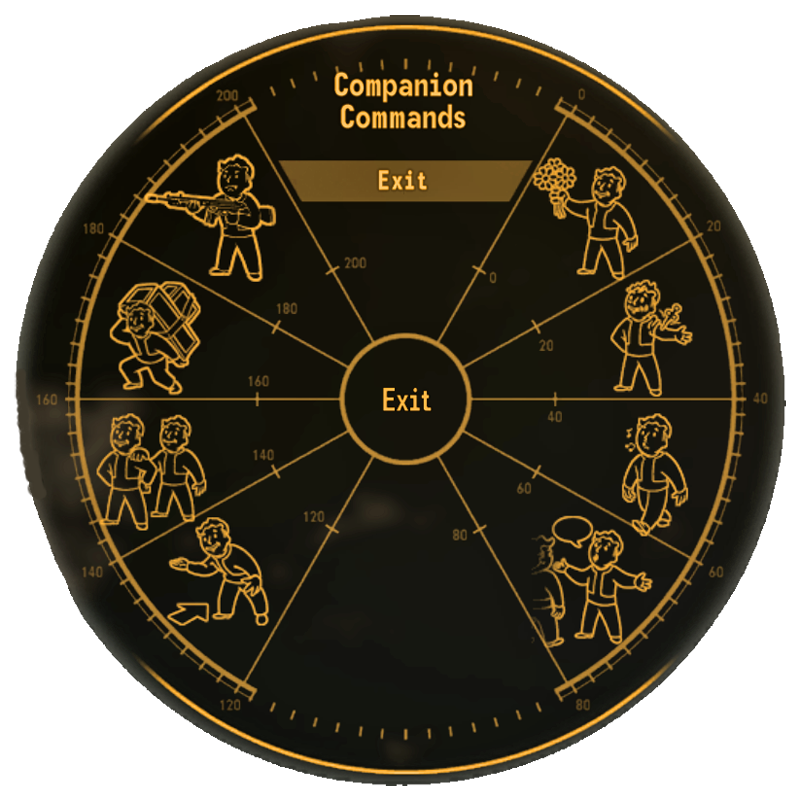On with my first real triple-A game opinion piece of the year since I started
this online journal around the dry-spell. I did say what game I would be
writing about from a previous post but for those who do not know, it's:
Fallout 4, the sequel to Bethesda's Fallout 3 and a
new instalment in the venerable Fallout franchise. Currently
available on PC (Microsoft Windows), PS4 (PlayStation 4) and X-Box One. This
action role-playing game (RPG) follows the story of the Sole Survivor, an individual
who was cryogenic-ally frozen prior to the Great War (the nuclear
holocaust) and awakes to a post-apocalyptic Boston with a mission: to
rescue their son who was kidnapped when strangers opened their
spouse's cryo-pod while seeking revenge since said strangers murder the Sole
Survivor's spouse in the process.
To give context to some of my points, I
played Fallout 3 first and enjoyed it a lot for the sense of exploration,
interesting side-quests and the unique lore being introduced before moving on
to New Vegas and loving it for its writing, role-playing capabilities and DLC
(downloadable content) expansion packs that paints an over-arcing antagonist
and theme while being just as fun as Fallout 3. I then bought Fallout 1 and 2
which after playing, I consider the two to be better than Fallout 3 though New
Vegas shares that pedestal (for quick reference, Fallout 2 and New Vegas
share number one for best Fallout entry with Fallout 1 being a narrowly close second and
Fallout 3 being a respectable but somewhat distant third). Some readers will assume that I am a
nostalgia-fanboy as a result of these admissions but while I admit some bias
due to love of older Fallout games, I do my best to regard Fallout 4 on it's
own merits and if that fails, I will attempt to elaborate why this is the case. If I do
complain about Fallout 4, it is due to the fact that I love the series and as a
result, I am willing to critique flaws so that it can improve further along the
line. Constructive criticism should be encouraged rather than disregarded as
blind hate.
The reason for that whole paragraph being
written is to give the next statement context. In short, I do not consider
Fallout 4 to be a great game. It is average at its worst and merely decent at
best. Fallout 4 is a decent game for the most part but sadly Bethesda has
dropped the ball in enough areas that it leads to my rather mixed opinion. I do not regard it as a good Fallout game. Do
not bother asking for numbered scores here because I do not believe that such a
system works as a method of assessing a product and besides, this is an opinion post.
So, here's my opinions on why this is the case.
What makes it?
Combat gameplay in this game is actually quite fun. One aspect
that often falls short in Bethesda games is their combat where the movements
are too stiff, the weapons have no impact, bullet sponge opponents existing
everywhere and/or the AI take their cues from Kamikaze pilots who forgot to get
onto their planes. Thankfully, Fallout 4 addresses most of these issues with
somewhat smarter AI that are capable of flanking and being able to use cover
properly rather than single-file line charges (though they find ways to justify
calming down after sniping out their comrades repeatedly) along with weapons
that have more impact on enemies (with some even capable of staggering
opponents and crippling them permanently, especially when shooting out their
legs).
Aside from behaviour improvements, there have
been additions to the gunplay that fit in quite well suck as a weapon bash key
for enemies that get too close (something that probably should have been in
Fallout 3 and New Vegas though the key binding needs work), a breath-holding mechanic for scoped weapons (which
balances sniping somewhat), cover mechanics and heavy weapons (like missile
launchers and mini-guns) finally being threatening to players or hostiles. While certain
annoying features do remain, such as bullet sponge opponents (human bullet
sponges are the worst examples in this game with raider survivalists and
veterans being able to survive more than 3 fully exposed headshots at a time
unless the player is sneaking), it is rather nice to have decent combat in a
Bethesda game.
EDIT: I forgot to mention V.A.T.S (Vault Assisted Targeting System) in here and my opinion is this: it is not as overpowered as Fallout 3's version which is good. It can be finicky on the PC though with a rather significant key-input to activation delay which is bad.
Gun customization helps with improving gunplay. Taking a leaf out
of New Vegas’s book, Fallout 4 allows for modification of weapons though with
arguably more options than New Vegas. Using materials obtained by collecting
junk and materials in the world, Fallout 4 allows a player to craft new mods
and features to weapons. Adding mods like silencers, scopes, recoil
compensators and larger magazines are expected but Fallout 4 is able to go
beyond that by allowing customized chambering for different ammunition types
(like a sniper rifle that can fire .50 caliber rounds rather than the usual
.308), differing modes of firing (full automatic, semi-automatic, or
bolt-action configurations) and differing stocks to fine-tune the type of gun
(with short stocks for hip-firing guns and longer ones for marksman-based
weapons).
When I found a powerful suppressed sniper rifle in the game, I was
disappointed by how underwhelming it was but after getting the right perks and
obtaining enough materials, I was able to fine-tune the gun into a sniper’s
dream with a larger magazine clip and being able to use .50 caliber rounds (while
allowing me to overcome most bullet sponge opponents with sneak criticals).
Many other weapons can be modified in that way (such as a certain
extra-terrestrial blaster *nudge, nudge, wink wink) and as a result, one could
find some fun in figuring out how to turn that laser musket into a lethal ray
of death and mayhem or even figure out how to replicate the M.I.R.V with a
basic Fat Man. This is an improvement that fits into Fallout well and as a
result, I can applaud Bethesda for this feature being implemented. Future
Fallout games should have this feature in their games with even more improvements added to it.
Settlement building ties into the material gathering process. With
materials obtained, one can use those materials to construct settlements in
locations with workshops in place. With the right perks and plenty of time, a
player could spend most of their time trying to build a perfectly functional
settlement that works well enough to leave alone for a bit while allowing for
creative builds. In my own playthrough, I recall most of my time was spent
running around settlements and building homes that one could live in without
dying from the environment. One of my prouder achievements in Fallout 4 was
successfully building a structure dedicated to trade that came complete with
ceiling fans for the convenience of the traders inside (or trader since I only
found one free settler at Sanctuary Hills). While the UI definitely needs works
since it is difficult to precisely place structures with a first person
perspective and that it ultimately does not amount to much in the main game
(aside from opening one meager ending route) while not having enough to justify
spending time with settlement building, this feature is fun enough for me to
enjoy myself; plus allowing me the chance to build my nightmare inducing
settlement on stilts. I hope that more can be done with this feature or even
find a way to allow settlement features (like electricity or water purifiers)
to influence their surroundings such as lighting up nearby ruins due to the
return of electricity or even having clean ground water that results in more
settlers showing up in the outlying areas for clean water. I do plan to make a
cage of poison settlement someday (all settlers locked into a house suspended
over a pool of radioactive water that is fenced off to prevent escape) so it
has given me motivation to continue playing at least. EDIT: Note that it did not in the end.
Power armor feeling right is rather difficult as it is
difficult to showcase how different one's interactions with their surroundings
while wearing power armor. Fallout 4 is able to capture the feeling of wearing
power armor in that respect. Previous Fallout games feature power armor but
they usually act more like clothing that confers massive benefits rather than
being armor in game especially in Fallout 3 and New Vegas where there is
barely any difference between wearing power armor and clothing. Fallout 4 goes
out of its way to make it feel different by changing the HUD and Pip-Boy
interface when wearing power armor while making it seem like entering a tank
or vehicle whenever the player decides to use it (with that initially
interesting animation for opening up the power armor). When wearing power armor, there is a difference such as loud stomping footsteps (that allow sneaking somehow with the right perks), a lack of falling damage from the
armor's shock absorbents in effect, customisable headlamps that work when using
the flashlight, additional features from modifying or customizing said armor
(which is an excellent addition) and being able to have an adverse effect on
enemies when landing from above or charging at them (with a perk for the
latter). Simply put, it is fun to wear power armor as it finally feels like a
mobile tank suit that justifies how America managed to beat China at Anchorage
in the series’ lore since I could tank shot after shot with a well-maintained
set.
The downside to the power armor however is how
unbalanced it can be to the gameplay after finding enough power cores and
getting the right perks. After I got the right perks, I never ran out of power
cores and could simply abuse the suit for almost any given situation, plus I
was able to find enough cores to fill up any emptied core. At time of writing,
I have the X-01 power armor Mk 3 (or Enclave Power Armour, the established super armor of the series) so the game became
ridiculously easy since most small arms could not deal enough damage to kill
me while aluminium can be easily obtained from your nearest diner.
(Googling images for the term below is rather depressing so I will not be using it)
Scarcity of supplies is something that does not really come across
in the modern Fallout games (with the possible exception of the J.E Sawyer mod implemented
in New Vegas). Fallout 4 has taken steps to remedy this in that regard. Normal
medical supplies are harder to find and tend to be of low quantity. Combined
with the more challenging combat and these supplies tend to run out, much like
an actual post-apocalyptic situation where supplies tend to be low and
frequently in use. This does not apply to drugs though so be prepared to hoard
loads of Jet, Mentats, Psycho, Med-X Buffout and more around the Commonwealth
while wondering why the chem tax of Diamond City does not apply to a mule like
yourself. Many times I found myself low on Stimpaks and Radaway in critical
situations, adding tensions to firefights even if the person with the Fat Man
fired a shot at their own squad again and I have enough Buffout and Med-X to
turn into a mini-Hulk.
This winds up making crafting even more important,
especially when crafting boosted chems and cooked food. In New Vegas and Skyrim,
I merely used the crafting in those games on rare occasions in the former or as
a convenient grinding spot in the latter. While I have used the ammunition
crafting in New Vegas for making max charge cells for my beloved Holorifle, I
rarely glanced at a campfire, workbench or an ammunition bench. In Fallout 4, I
found myself stockpiling meat and vegetables to make food for healing. While I
can criticise the new stimpak mechanics for my forced reliance on food, it is
rather nice to finally be incentivised to cook my food. It helps that there are
also plenty of benefits from the cooked meals such as granting temporary gills,
increased strength and even reducing radiation in the body (somehow).
As for
boosted chems, being able to combine Psycho and Jet can really help in a pinch
while making your player character shout hilariously in the process with every
dose of Psycho. Overall, the scarcity of proper supplies not only
replicates the desperation in a post-apocalyptic situation but places
importance on using cooked meals and chems instead though suffers from
potential stockpiling.
Bethesda’s formula with sandbox works here in a way. Like
most Bethesda games, a large open-world is provided with a large quantity of
content to look at and interact with. While the side-quests here are not as
extensive or interesting as previous Bethesda games, there are minor exceptions
to this such as the Silver Shroud quest (try to guess why it is called that), some detective cases and a quest involving a boat and robots. These are rather fun spectacles to
interact with that can be memorable for players. Random encounters do exist in
a limited extent (since in my playtime, I only found one real random encounter
that is out of this world).
Games by Bethesda usually take hundreds of hours to
fully explore though lacking in depth and this usually is enough to justify
buying the game at full price for some players. The game does have enough
unique gear and sights to see though hampered by the Radiant Quest system that
reuses locations and enemy types, often resulting in recycled elements that
make the game dull. Once again, Bobbleheads are back so completionists may have
something to do though the effects of certain bobbleheads tend to be rather
useless due to their effects merely replicating available perks. The modding
tools released together with Fallout 4 may cover the lack of deep content in
the game but for what it has, it is clear that Bethesda still relies on their
tried-and-tested formula.
Cats. There are cats in this game that roll on
their backs like actual playful cats while being annoying by jumping
onto valuable desk space. They can be harmed as well, much to my
own horror. So, that’s a personal plus. Not an actual positive but it kept
me invested in slaughtering a settlement to ensure I control the only
settlement with a cat that jumps onto the desks (though the townsfolk started
it with a questline that ended poorly for them).
What breaks it?
The dialogue system is important for any RPG and Fallout 4's greatest misstep
is their new dialogue system. This particular criticism will be long as this is
my greatest gripe with the game and one of the main reasons why I only have a
mixed opinion of this game. Fallout is well-known for having extensive dialogue
lists that allow for extensive role-playing as various tones, expressions and
meaning exist within these lists. Fallout 1, 2, 3 and New Vegas fully displays
what the player character will say and often it allows the player to determine
what they are saying while helping players determine the degree of sarcasm or
bluntness in a dialogue option. This is a game series that is famous for
allowing players to talk down final bosses (with the exception of Fallout 2
though Speech does affect how easy it is) Fallout New Vegas (along with the previous games – not sure about 3 though) goes one step further by applying skill
checks where the level of a certain skill or SPECIAL stat can open up even more
options with a high Medicine skill allowing players to catch an addict faking
an injury for a quick fix, a high Guns skill allowing one to catch a fraudulent
con-man in the act or even a high Luck allowing a player character to perform
brain surgery successfully despite having a low Medicine skill (anyone who gets
this reference will get an Internet cookie).
Fallout 4 however does not have any complexity in the dialogue system. Instead, it goes for the Mass Effect-style dialogue wheel which allows fully voice acted dialogue but limits the conversation options and does not show the player the full line to be spoken. The games that utilise this system, like the Mass Effect series and Dragon Age 2 onwards, do compensate for the limited words present to describe an option by providing indicators or decent length sentences to inform players of their options though the success of these indicators varies at times. Fallout 4, while having some decent voice work for its player characters at least, however mainly uses a few words at most and a single word at its worst to describe a dialogue choice and its consequences. How does the word 'Sarcastic' convey any information aside from the tone? As a result of this, I rarely picked that option as I was never sure if it was a mere remark, a sarcastic affirmation or a sarcastic threat. Beyond the 'Sarcastic' option, other options may end up being simple one-liners that continue the dialogue regardless of the knowledge possessed by the player. There was a moment in the game where I picked an option that simply stated "Didn't do it for money" which seemed dismissive but as soon as I picked it, my character took an aggressive tone for his lines which winds up not telling the player anything and could lead to unintentional results. As a result, new players may end up selecting the option bearing a question mark the most since the remaining options will primarily move the conversation forward without giving enough information about the situation except for a select few situations. There is always a need to convey additional information to players when offering options so that they can choose in the first place which is something Fallout 4 forgot for the sake of stream-lining. Please note that there is a mod that does address the one-liner dialogue options but it is unable to allow dialogue cycling to learn more about the situation so the options are still limited.
In other news, skill checks are gone now. All Fallout 4 has now is persuasion that is primarily controlled by Charisma so it makes it almost mandatory to have high Charisma to have all options open to the player. None of the perks or the other SPECIAL stats play a vital role in the dialogue system which reduces the chances of changing the outcome of certain situations outside of a high Charisma stat. Even with a high Charisma stat though, most persuasion options are only used to increase the number of caps (the in-game currency) one receives for a quest with far too few persuasion options to alter the sequence of events substantially. This links to an additional problem about the dialogue whereby most of the dialogue options end up leading to the same outcome (save for some "once in a blue moon" instances) since for the most part, the options tend to be affirmative in intent with the only difference being the tone used for affirmation. Even if the option to decline is present, there is usually no point since the player will miss out of experience points and loot for rejecting offers made. If there is one criticism about Fallout 4 that I am not afraid of stating on circle-jerk discussions, it would be the dialogue system which is completely dumbed down from the complexity of its predecessors (which is ironic since Fallout 3, despite being one of its predecessor, had a better dialogue system than 4).
The lack of role-playing in a role-playing game is a rather odd flaw for a game to have but Fallout 4 has dropped the ball when it comes to the role-playing experience that the Fallout series is known for. I have discussed the flawed dialogue system of Fallout 4 extensively above and this ties into that aspect. As I previously mentioned, most dialogue options tend to lead to the same outcome since the player character's conversation options tend be tailored towards some form of affirmation. Even persuasion options tend to be tailored towards obtaining more caps for a job rather than opening up new options in a situation which occur too infrequently for my liking. As a result of the new dialogue system, the player character feels more like a sycophant that forgot the proper way of rejecting a proposition. Even when the game offered me a chance to act like a jerk, there was no impact within the game nor was there an impact on the characters in-game are in dialogue with the player character.
This could be a result of the lack of a karma system though to be fair, an arbitrary black and white karma system is rather dull at times. New Vegas took this to heart to a limited degree whereby the reputation of the player character there took precedence over one's karma which lead to differing levels of treatment by the in-game characters depending on faction such as having the NCR treat you like an elite member of the military or Caesar's Legion having a death warrant for your head etc. Adding onto this was the fact that the dialogue options in the previous games had differing tones and intent behind each option for most conversations which could lead to differing outcomes depending on how you want to role-play the character. Do you act like a complete goody-two shoe who helps everyone regardless of faction, a selective jerk who is only nice to their closest companions or a complete manipulative psychopath? Different options may open up or close when certain dialogue options are chosen for the previous games that could change the circumstances (such as using the wrong dialogue options could cause a Speech check to fail since your words are inconsistent). In Fallout 4, your options are to be a completely nice guy, an aggressive nice guy, a perplexed nice guy or a humorous nice guy. Even when I wanted to express my opinion of a character or faction, my in-game character was limited to four options that did not provide much variance nor were there instances where I was asked about my opinions. Only around the mid to endgame is there some form of role-playing to the game but by then, it feels rather pointless since the main story winds up feeling shorter than it should be.
The new perk
system and the loss of the skill system can be excused by some and for what
it’s worth, some of the new perks introduced are quite useful to fine-tune a
character. That said, the new system is quite a step backwards for me. As a result of taking out the skill system, their functions are transferred over into perks used to substitute them. This may not be too much of an issue initially but as a result of this, some perks wind up feeling more mandatory to obtain over others. As a result of this new system, I was forced to use valuable perk points to obtain abilities that improving skills used to cover such as advanced hacking, advanced lock-picking, improved healing with medicine, improved sneaking and more that I am unable to recall at the moment. I was only able to use the more unique perks for my character after extensive grinding to ensure I obtained the perks I needed to progress with my usual character builds (or the closest it can be in this game) in previous Fallout games. This is not a big issue as the previous entries but it can be an issue for veteran players used to the skill system as some adaptation is required. I do hope Bethesda can re-implement the skill system but keep some of the perks of this game (like the berserker charge while wearing power armor). I can however commend this system for one thing; it does encourage specialization as you are forced to use valuable perk points for skills you would use often.
The main story and narrative has its issues as well. While it starts out with a somewhat intense goal in mind, the intensity fades as the player explores the Bethesda sandbox. Without side-quests that bear links to the main quest or some medium awareness, the side-tracking weakens whatever emotional investment in the main goal of the game. The main quest in Fallout 4 offers even less reason to be invested in the story as the whole matter can be overlooked despite the gravity of the situation for the player character which is not helped by the inability to role-play. Littered throughout the game are factions that are meant to be joined to shape the player's role in the game but the speed of entry into each organisation winds up leaving the player to deal with radiant quests that bear little impact to the story. I take it from what I have played, Bethesda forgot what pacing meant after making Skyrim since the story has unexpected boosts in speed at times with main quests having overly quick resolutions and faction quests only having a few generic stages to them. Upon reaching the mid-game, a twist is revealed, which I will not spoil for now, that opens up the last faction to join. From there, the remainder of the game's story becomes a disjointed mess with most faction quests still open despite your ties to other factions. The pacing in this part is unbearably fast as some routes allow the player to reach the ending under two hours while some taking a few quests at best. It was in this last bit where the game became a chore for me as I found myself going around in circles with the quests wondering where the focal point of the story will be. I found it difficult to invest myself in any faction since the only real quests I ever did for them are mere fetch or extermination quests rather than some unique quests that could involve creative solutions with skill checks. In addition, the lack of a proper faction system like Fallout New Vegas meant that I was still friends with all the factions even when open war broke out between them all (I'm talking to you, Battle of Bunker Hill or the Bore that is the Battle of Bunker Hill).
Out of all the endings, only one ending felt somewhat appropriate for the Commonwealth as a whole while the rest were insubstantial. Despite reaching this ending though, the ramifications of your choice feels inconsequential as all the victorious faction does is hand the player more side-quests to do (for some factions). In the ending I wound up with, I spent my remaining time wondering how do I broker agreements with the settlements and the remaining factions for an alliance that could lead to the formation of a new nation but the game simply skips over this by leaving it to my imagination which is not helped by the limited dialogue options that confirms my inability to inquire on the ramifications of my actions.
The lack of a substantial epilogue for the fates of each major character and faction acerbates this problem as it leaves a lack of closure while leaving other issues, like the formation of a new nation under the chosen faction, unresolved. While New Vegas, 2 and 1 use long slide shows as epilogues, it provided a sense of closure and satisfaction as I learn of the consequences of my actions ranging from region-changing to a slight improvement to lifestyle. Fallout 4 however only provides the same ending cutscene for the main endings with minute variations depending on the faction. This left me with a sour taste in my mouth as I realized that I will never know what will happen to the people and the places I have aided now that I have eliminated the greatest threats to the Commonwealth. After New Vegas, I had hoped for a main quest story that could eventually lead to my actions shaping the region and its politics for the foreseeable future but with Bethesda's track record with main quest writing, I lowered my expectations. Sadly, my lowered expectations for the story was justified but credit where it is due, Bethesda have tried to add morally grey traits to the factions rather than the simple black and white morality of Fallout 3's main quest factions.
Companions have existed since Fallout 1 with characters
like Ian and Dogmeat. New Vegas was the high point for Fallout companions as
they possessed greater depth and complexity with their backgrounds and flaws,
while being fun to have and useful (like Boone and Veronica). Fallout 4 has
companions as well. While their voice-acting is not awful and some of them have
interesting backstories, this does not excuse the downgrading when it comes to
companion management and their behavior. New Vegas implemented a companion
wheel that could be immediately accessed when interacting with companions and
allows for immediate customisation of strategies, access to their inventory,
fine-tuning their aggression while even including the option to tell them to
back away when they obstruct the player character. This was simple, efficient
and a lot better than scrolling through dialogue option to find the right
command.
Fallout 4 decides to implement Skyrim’s command
system instead which is reasonable since they are using the same engine as
Skyrim but rather than activating it by looking for the option in their
conversation list, it activates as soon as the player character interact with
them from a distance or leave dialogue without cancelling it properly though
the player can choose to command them if the player wishes. This makes
commanding infuriating as I often wind up commanding Dogmeat, Piper or
Valentine to head over to a location I did not want them to go to (or inspect a
corpse I was thinking of inspecting in the heat of battle) and cancelling it
requires them to hold still.
This would not be a problem if their AI actually
worked in these instances! The companions often move around when they are near
me and this may disrupt dialogue at times which requires me to run up to them
again to re-initiate dialogue which is infuriating when encumbered by junk. Other baffling behaviour is how active they are
as I have experienced many moments where a good sniping vantage point is ruined
by one of my ‘companions’ running in front of me and leading to me blowing
their brains out (or I would have if not for out of place companion
invulnerability – I am aware that New Vegas had this for normal difficulties
but Hardcore mode removes this issue like a precise appendectomy whereas Fallout
4’s ‘Survival’ mode does not). Other moments of ‘competency’ includes running
into a minefield, tripping tripwires whenever they run ahead of me (which
occurs rather often) and shooting at excessively distant targets that I attempt
to snipe (the latter of these moments led to my rather rational hatred of Preston
Garvey, that no-brained laser musket wielding twat who constantly dishes out timed side-quests of little variation like a bad case of diarrhea). It does not help that
certain companions can be useless such as Preston who constantly misses his
shots and Strong who does not have much impact in a fight. I know that it is possible to
equip companions with different weapons and gear but oddly enough, I found out
about that feature after watching a guide on Youtube rather than an in-game
loading screen tip or a tutorial screen. Even if the reader argue that I should
have checked the interface better, I will counter with this: New Vegas and
Fallout 3 did not do this as the companions were smart enough to equip their
new gear immediately after I give them ammunition or give them superior armour.
In addition, the equipped gear still appears in their inventory and at any
time, I could reclaim my Bozar or the Terrible Shotgun from my companions in
their respective games. As a result, I disregarded the companions that did not
have side quests and mainly used them as meat shields to distract opponents
while I snipe out the bunghole with the Fat Man. I did not care for any of them
though I did develop mild fondness for the more interesting characters (like
Valentine, Cait, Curie and Codsworth). Aside from that, all of the companions
are rather forgettable due to their management system and pants-on-head retarded
behavior.
Progression in Fallout 4 does not feel natural or gradual. What I mean is the sense of the game moving forward with improvements to your character as you progress along. What this usually means in a normal RPG is that the player character will start out weak or ineffective against stronger threats with lousy gear to handle said threats. As you gain more experience through combat experience, exploration experience or quest resolution experience, your character grows in terms of their capabilities. By the end, your character should be a master of your selected skills with room to slot in gaps (though having dump stats may not be a completely good step). That said, Fallout 4's progression is rather wonky as after three to six hours, a player can obtain a mini-gun and power armor after the first real quest in the game. While ammunition is scarce for the mini-gun and the power armor runs on limited fusion cores, there are ways around that with a combination of perks and exploration. As a result, the player can start the game with over-powered gear and it continues from here. Acerbating this is the loot drop system of the game whereby, aside from certain enemies having over-powered heavy weapons, the player may wind up discovering weapons that can be considered mid-game such as a Fat Man lying in a chest in an early locale. The legendary enemies however derail the progression further by spawning far too often and dropping overpowered loot at times. At one point, I had a shotgun with infinite ammunition as a result of a legendary Ghoul I ran into while exploring. As a result, the game becomes unbalanced whenever a particularly good legendary weapon shows up, like a sniper rifle capable of doing more damage when the target has full health. The game laying all its card out at the front door may hurt the sense of gradual progression for some. I was one of these people as I slowly stopped caring about exploring areas below my level since I knew that my curiosity may reward me with a Gauss rifle someday. At least the perk system does its best to fill in the loss of progression when it came to developing my character's stats but with overpowered gear already at hand, this journey felt like a guided tour at times. I did not feel my character journey in adapting into this new world but rather I felt like a shooter protagonist who has token RPG elements attached.
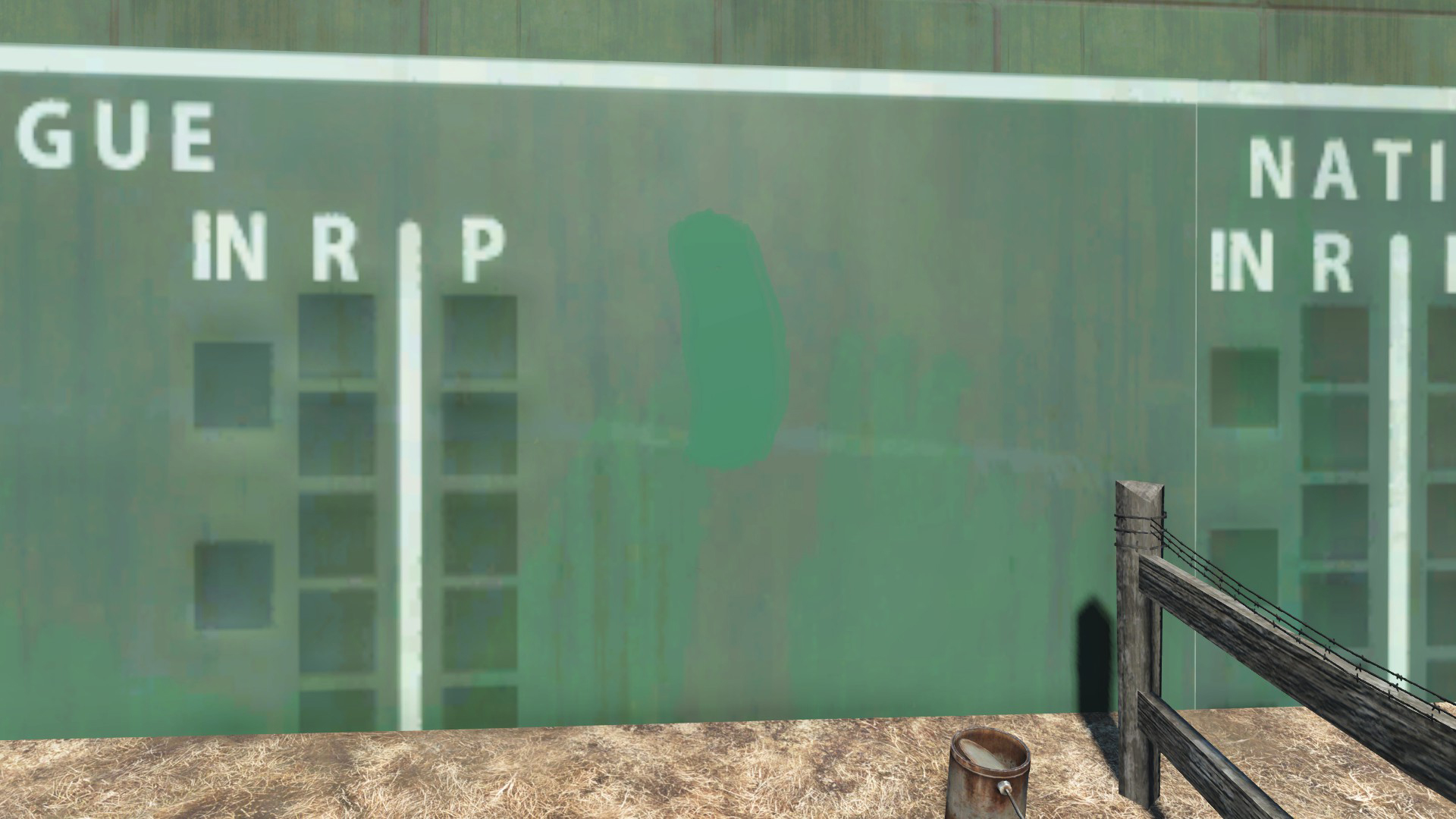 |
| http://vignette2.wikia.nocookie.net/fallout/images/2/24/Painting_the_Town.jpg/revision/latest?cb=20160214230510 Lack of diverse
side-quests was
mentioned previously though briefly. While I did mention that there were
numerous events to interact with in the game, these events lack in diversity. Most of the quests in the game are variations of extermination, fetch or escort quests with no added twists to them. This, I believe, is the result of the Radiant Quest system that causes the game to randomly pick one of many hostile locations for a quest objective to be located in. As a result, many areas are re-used regularly for quests with the same objectives and methods to fulfill them with few unique areas that are hand-crafted for the quests. When looking at Fallout 3 and New Vegas, one could see the unique locations that have been made for certain quests, making them memorable and interesting without making them redundant with frequent re-visits. Fallout 4 however recycles locales so often that it drains whatever intrigue I found in those places like the Dunwich Borers whereby 3 quests had me going there every time and reduces whatever creepiness factor that made it interesting in the first place. New Vegas meanwhile has places like Vault 11, the Boomer compound, the Great Khan's main settlement and more for their side-quests while Fallout 3 had locales like the Dunwich Building, Canterbury Commons and Arefu. These places are not recycled for quests which make them more interesting to explore for first-time players and remain interesting on subsequent playthroughs especially when discovering new options made available by having different character stats. |
Graphics and animation are rather out-dated for
a modern triple-A game. I usually do not mention graphics in my opinion posts as I
do not subscribe to the school of thought where you need graphics to enjoy a
game but when there is an apparent issue staring at me, I have to address it.
Firstly though, I will say that the natural lighting and weather effects are
adequate for the game with unique looking effects in certain weather like
radiation storms that have lightning streaking around the clouds at intervals.
The added colors to the Wasteland are another neat addition to the overall
look of the game. Now back to the issues; the textures up close look terrible.
When I look at the ground and objects up close, I see the same types of
textures I am used to seeing in Skyrim, New Vegas and
‘appropriate-heavenly-body’ forbid, Fallout 3. I do not take much issue with
this but I do take issue still since Fallout 4 is a 2015 triple-A release with a huge budget and development time. With
the amount of funding and time they had, they should have been able to match
Witcher 3’s graphics (which look good even on lowered settings) at their bare
minimum. I will not go into further details about the graphics since I do not
think I will be able to cover this aspect with the detail that other
independent reviewers could.
So, I will instead discuss the animation and lip
sync in particular. The former does not make any strides and appear inferior when
compared to Witcher 3’s best animated moments though it is serviceable while
capable of expressing emotion (though requiring exaggeration rather than subtle
movements). The lip-sync is horrible at times since their mouths can make too much or too little motions when articulating, resulting in extremely deformed lip movement and when it is not being insane, the rest of the lip-sync does not astound in the slightest. One reason I am terrified of Piper is the crazy ways her mouth moves in certain conversations as though she was suffering spasms that are only visible on her mouth. As a result, I was more than relieved to abandon her once I got her companion perk since spending time with her when she becomes vocal was terrifying as staring into an abyss with her angry boyfriend approaching with his fists raised. On the other hand, some sentences that my player character along with other NPCs look unnatural as the lip movement for articulating certain words or phrases seem off and reaches the uncanny level at times. More polish is needed here especially when the game wishes to use voice acting for all the characters.
Bugs are typical of Bethesda games due to their size. Despite this excuse, Bethesda does not seem to get the memo to play-test their games like Valve does since a number of bugs has appeared in Fallout 4. I have experienced the following: an inability to send companions back to their original home bases despite being granted the option, long delays when switching weapons with hotkeys, crazy rag-doll physics (I had one doing the Cossack dance at one point), disappearing textures at certain angles, invisible weapons when switching with hotkeys and two hard crashes. People have revealed more of these bugs online so I will not spoil the list further (since I have only seen a few of these lists). I know it is typical for Bethesda games to have these bugs but I do expect even more attempts to fix them before launch and if there are bugs, immediate responses to fix these bugs like Witcher 3. I am aware mods are out to resolve some of these issues (especially for PC users) but Bethesda should not be excused from criticism even if someone else can cover for them. As a regular Bethesda game player, I am getting tired of expecting bugs in a Bethesda game and hope that their next game will have minimal bugs at best or a quick response team to fix these bugs. At least play-test as much as Valve but not till the point that it delays certain games (*nudge, nudge, wink, wink).
While there are fewer links to the established lore of the Fallout series than Fallout 3 at times, I will not hold it against them since the Commonwealth is at a different region than the main series. I will hold the rest against them.
In summary (or TL;DR):
Fallout 4 is still a fun game to play since Bethesda has made improvements here and there. As a Fallout game however, Fallout 4 is probably the weakest of the main series due to the streamlining and downgrading of the elements that make up the Fallout games (the extensive dialogue systems, progression and decent writing behind the quests and characters). I can still give this a recommendation for non-Fallout series players (starting from 1 onward) but only after a couple of years and after Bethesda releases decent expansion packs while having an extensive library of mod content to select from. As for fans of the entire Fallout series, I will say this: wait for modders to find a way to mod new content in. The current game is Fallout in name only and not worth the current price which is sad since I did like playing the game. To other Fallout series' fans who do like the game, there is nothing wrong with your opinion. The game is fun and does certain things right. It's just that Fallout 4 was not a Fallout game for me personally. It did however remind me to finish my current playthroughs of Fallout 1, 2 and New Vegas though. So, that's nice.
If you have an opinion on this opinion piece, why not share it in the comments along with your favourite glitch? Mine was when the aforementioned corpse decided that a horizontal Cossack dance was the best way to save his mates and it did save them for ten seconds as I stared at it with confusion.
P.S: Sorry for the wall of text. Also, consider me un-hyped for Elder Scrolls 6 since Bethesda is probably going screw up there as well.
What makes it?
Combat gameplay
Gun customization
Settlement building
Power armour
Scarcity of supplies in gameplay
Bethesda’s formula
What breaks it?
The dialogue system
Lack of role-playing in a role-playing game
New perk system and the loss of the skill system
Main story and narrative
Companions (their AI and behaviour)
Progression
Lack of diverse side-quests
Graphics and animation
Bugs
EDIT: (Moved the OPM section here because I should adhere to the structure suggested by the title)
WARNING: THERE ARE SPOILERS IN THE FULL EXPLAINATION FOR THE OPM OPINION PIECE!
[This week on One-Punch Man: Yeah, it's pretty good.
.
.
.
.
.
.
.
.
.
.
.
.
.
.
.
.
Alright, alright! This week's episode is a rather decent adaptation of the Sea King arc's second half. Rather than my usual brief look, I have decided to write out the events in some degree of detail. Firstly, Genos vs Sea King was pretty good. The animation for Genos vs. Sea King was quite good and it felt intense as both combatants are genuine threats to each other. The anime was able to agony of Genos's sacrifice when Sea King pulls an underhanded move during their fight by attacking a civilian during their fight as the manga is not as good at conveying this from what I recall. After Sea King beats up the dying Genos's, LICENSE-LESS RIDER (or MUMEN RIDER) shows up. The fight is rather realistic in portraying an average man attempting to fight a homicidal juggernaut of a beast which is brutal on the former. Yet, he persists and keeps resisting even when he acknowledges his own weakness. This is why I like Rider so much as he represents a hero with purely just intentions. Despite his own weakness, he continues to resist the adversity thrown at him for the sake of protecting those he is responsible to as a hero without any desire for fame or fortune. Even with his weakness, heroes like License-less Rider know that they bear the responsibility to protect their charges even if it is to delay the inevitable. His last stand is well conveyed in the anime and just as Sea King is about to finish off the defiant hero, Saitama shows up. Here, he praises License-less Rider for his efforts and after seeing Genos in his battered state and being sucker-punched by Sea King, delivers his typical one-hit kill.
The rest of the episode explores the consequence of his actions where his one-hit kill of Sea King winds up leading to a twat denouncing the other heroes as being worthless for their inability to even defeat Sea King when a single C-rank hero is able to effortlessly kill the monster. As the public begins to come around to the twat's line of thought, Saitama does the only thing a true hero could do in such a situation: he damages his own reputation to preserve the reputation of the other heroes by lying about his intentions to take credit for killing a monster that the other heroes have weakened (something that the viewers know is untrue). Without caring about his own reputation or his hopes of being popular, Saitama effectively destroys his own credibility to the public and carrying over from the episode before the previous one involving the meteor, his public image is irreparably tarnished for the time being. This winds up showing the consequences of Saitama's over-powered nature as his one-hit kills wind up portraying his opponents as weak opponents to the presumptuous or uninformed which leads to consequences for his fellow heroes. At the same time, it highlights the heroic traits in Saitama as he proves that his desire to be a hero is motivated out of a desire to do what is right without needing fame or fortune (the latter however can tempt him since daily expenses are a real problem for people).
To the anime's credit, the way the scenes are arranged are able to create shock in newcomers as, after the battle seemingly ends, Saitama opens up what appears to be fan-mail but winds up being hate-mail as a result of Saitama's ruse. This is a change I rather like since it does create anticipation for the public's response to Saitama after the meteor incident and raises outrage like Genos when it is revealed to be hate mail. The episode eventually ends with Saitama choosing to advance to B-rank due to the Hero Association taking note of Saitama's success against Sea King and an incidental meeting with a grateful License-less Rider who acknowledges Saitama's heroics and treats him to a meal, while revealing himself to be the sender of the only positive letter addressed to Saitama. As an adaptation of the Sea King arc, I quite enjoyed the anime's version and have little to complain. My only complaint is how the art is not as good as Murata's illustrations which is rather unfair since the manga consist of still illustrations while the anime has to make do with differing perspectives and actual motion while remaining within budget.
In conclusion, I give this episode, along with the two episode arc it is a part of, a recommendation to watch. Those who are not interested in the show may probably not have their opinions altered but for newcomers or regular viewers, it should entertain at least.]
